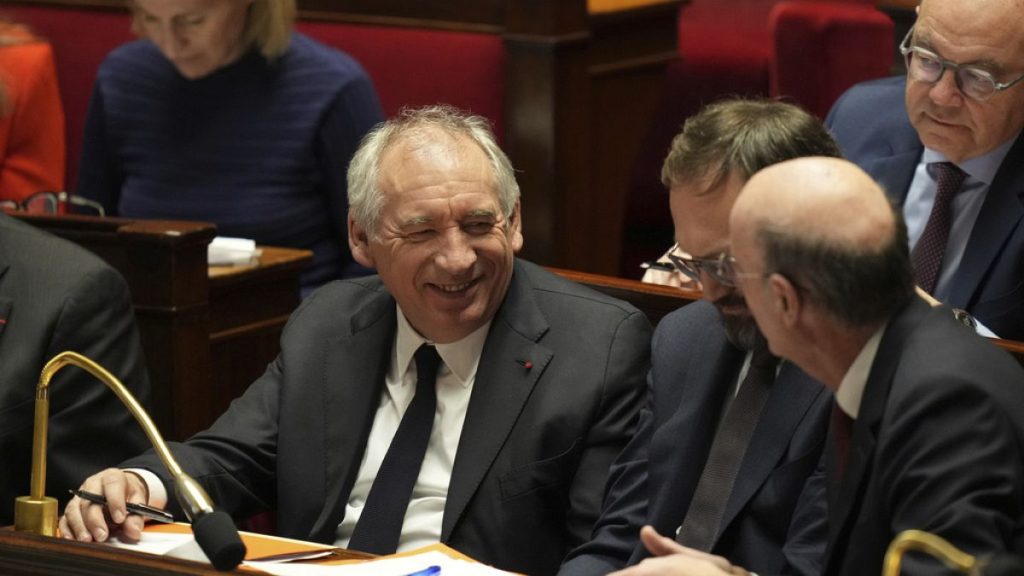The French political landscape witnessed a dramatic turn of events as Prime Minister François Bayrou narrowly survived a no-confidence vote, highlighting the deep divisions within the left-wing coalition and the precarious nature of his government’s stability. The no-confidence motion, initiated by the hard-left France Unbowed (LFI) party, was triggered by Bayrou’s general policy speech, which outlined a roadmap encompassing potentially contentious reforms, including renegotiations of the unpopular pension reform and significant budget cuts. However, the motion ultimately failed due to the unexpected abstention of the Socialist Party, a key component of the left-wing coalition, and the far-right National Rally’s decision to withhold support.
Bayrou’s survival, while a temporary victory, underscores the fragility of his position and the challenges ahead. The Socialist Party’s decision to abstain, despite earlier threats to oppose the government, exposed the fractures within the New Popular Front (NFP), the left-wing coalition. This move drew sharp criticism from other coalition members, particularly LFI leader Jean-Luc Mélénchon, who accused the Socialists of undermining the coalition’s unity. The incident highlights the difficulties of maintaining a cohesive opposition bloc against Macron’s government, particularly when navigating complex issues like pension reform and budget cuts, which necessitate delicate compromises and can exacerbate internal divisions.
The far-right’s calculated decision to abstain further complicates the political equation. While some members criticized Bayrou’s proposals, the National Rally ultimately chose to defer judgment pending concrete actions. This strategic move reflects the party’s evolving tactics and its potential willingness to engage in pragmatic maneuvering rather than outright opposition. It also highlights the fluid nature of political alliances in France, where traditional ideological boundaries can blur in the pursuit of specific political objectives. The far-right’s stance adds another layer of uncertainty to Bayrou’s government, as their future support remains conditional and potentially subject to shifting political winds.
Looking ahead, Bayrou’s government faces significant challenges, particularly the looming task of formulating a budget plan for 2025. The absence of a concrete budget proposal was a key factor in the downfall of his predecessor, Michel Barnier, who was ousted in December after a no-confidence vote triggered by opposition to his budget plan. This historical precedent underscores the critical importance of navigating the budget process effectively and securing sufficient support to avoid a similar fate. The government will need to carefully balance fiscal responsibility with social welfare considerations, a delicate balancing act that will likely require further negotiations and compromises, potentially reigniting tensions within the ruling coalition and with opposition parties.
The political landscape remains highly volatile, and Bayrou’s government’s survival depends on his ability to navigate these treacherous waters. He will need to manage the internal divisions within the ruling coalition while simultaneously seeking common ground with opposition parties on critical issues like budget reform. Furthermore, the government must address the underlying social and economic concerns that fueled the protests against the pension reform, a deeply unpopular measure that continues to cast a long shadow over French politics. Failure to address these concerns effectively could lead to further social unrest and potentially destabilize the government.
In the long term, the survival of Bayrou’s government hinges on its ability to deliver tangible results and restore public confidence. The government must demonstrate its commitment to addressing the economic challenges facing the country, while also addressing the social concerns that have fueled public discontent. This will require a combination of pragmatic policymaking, effective communication, and a willingness to engage in dialogue with all stakeholders. The road ahead is fraught with challenges, but Bayrou’s ability to navigate these complexities will ultimately determine the fate of his government and the direction of French politics.














